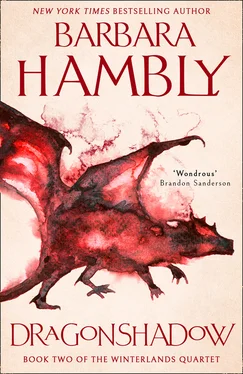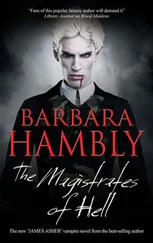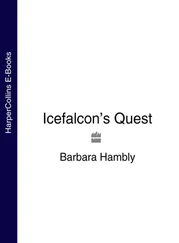“Three. That was Alkmar the Godborn. His third dragon killed him.”
In the hour or so that separated them from moonrise, John and Jenny mustered all they would need for the slaying of the Dragon of Skep Dhû, such of them as were stored at the Hold. John’s battle armor, almost as battered and sorry as the doublet of black leather and iron in which he was wont to patrol his lands. Two axes, one a short, single-grip weapon that could be wielded from the back of a horse, the other longer and heavier, a two-handed thing for finishing a creature dying on the ground. Eight harpoons, like boar spears but larger, barbed and massive and written over with spells of death and ruin.
John’s half-brother Muffle, sergeant of the local militia and smith of the village of Alyn, had forged the first two in a hurry, when the Dragon of Wyr had descended on the herds of Great Toby fourteen years ago, and the others had been made a few weeks after that. Jenny had put spells of death on them all. In those days her powers had been small, hedge-witch magics taught her by old Caerdinn, who had once been tutor at Alyn Hold, and she had known little of dragons, only scraps and snippets culled from John’s books. Killing the golden dragon had taught her something of a dragon’s nature, so when Prince Gareth of Magloshaldon, later Regent for the King of Belmarie, had come begging John’s help against the Dragon of Nast Wall, she had been able to weave more accurate spells. Her magic was still, at that time, small.
Now she sat on the wooden platform that John and Muffle had built at the top of the tower for John’s telescope. The eight harpoons lay before her on the planks. Far below she heard John’s voice, and Muffle’s, distant as birdsong but far more profane, as they dragged out cauldrons and wood. She heard Adric’s voice, too, a gay treble—her second son, at eight burly and red-haired and every inch the descendant of John’s formidable, bearlike father: He should be in bed! Beyond a doubt three-year-old Mag was trailing, silent as a marsh fey, at his heels.
For a moment she felt annoyed at John’s Cousin Dilly, who was supposed to be looking after the children, and then let all thought of them slip away with the releasing of her breath. You cannot be a mage, old Caerdinn had said to her, if your thoughts are ever straying: to your supper, to your child, to whether you will have the next breath of air after this one is gone from under your ribs. The key to magic is magic. Never forget that.
And though she had found that magic’s key was something else, in many ways the old man had been correct. Her thought circled, like the power circle she had drawn on the platform around herself and the harpoons, and like the power that came down to her in silver threads from the shape of the stars, her thought took shape.
Cruelty. Uncaring. The quenching of life. The weary welcoming of the final dark.
Death-spells. And behind the death-spells, the gold fierce fire of dragon-magic.
For four years, now, that dragon-blaze had burned in her blood.
Morkeleb, she thought, forgive me.
Or was it not a thing of dragons to forgive?
Morkeleb the Black. The Dragon of Nast Wall.
She summoned the magic down from the stars, out of the air, called it from the core of fire within her that had burned into life when, by Morkeleb’s power, she had been transformed to dragon-kind. Though she had returned to human form, abandoning the immortality of the star-drakes, part of her essence, her inner heart, had remained the essence of a dragon, and she understood power as dragons understood it. Since it was not a thing of dragons to think or care, she did not, as she wove her death-spells, think or care about Morkeleb, who had loved her.
Loved her enough to let her return to human form.
Loved her enough to return her to John.
But after the death-spells were wrought and bound into the harpoons, she sat on the rickety platform above the Hold, her arms clasped round her knees, listening to the far-off voices of her husband and her son and remembering the skeletal black shape in the darkness, the silver labyrinthine eyes.
Morkeleb.
“Mother?”
Starlight showed the trapdoor that opened among the slates of the turret roof, but it did not penetrate the shadow underneath. Mageborn, Jenny was able to see her elder son, Ian, a weedy twelve-year-old, her own night-black hair and blue eyes in John’s beaky face. He stepped onto the steeply slanting roof and made to come down the stairs, and she said, “No, wait there.” The weariness of working the death-songs dragged at her bones. “Let me gather these up and send them on their way.”
Ian, she knew, would understand what she said. Only this year his own powers had started to manifest: small, as any teenager’s were—the ability to call fire and find lost objects, to sometimes see in fire things far away. Ian sat on the trapdoor’s sill and watched in fascination as she drew the glimmer from out of the circles, collecting it like cold spider-silk in her hands. All magic, Caerdinn had taught her, depended on Limitations. Before even beginning to lay down the circles of power, let alone summon the death-spells, she had cleansed the platform with rainwater and hyssop and laid on each separate rough-hewn plank such Words as would keep the vile magics from attaching to the place itself. Spells, too, were required to hold the wicked ferocity of what she had done within a small space, so it would not disperse over the countryside and cause ruin and death to everyone in the Hold, in the village, in the farms that nestled close to the walls. Like a miser picking up pinhead-sized crumbs of gold dust with his fingernails, so Jenny gathered into her palms each whisper and shudder of the death-spells’ residue, named them and neutralized them and released them into the turning starlight.
“Can I help?”
“No, not this time. You see what I’m doing, though?” He nodded. As she worked, she felt, rising through her—as it always rose, it seemed to her, at the most inopportune of times—the miserable flush of heat, the reminder that the change of a woman’s life was coming upon her. Patiently, wearily, she called upon other spells, little silvery cantrips of blood and time, to put that heat aside. “With spells of cursing you must be absolutely thorough, absolutely clean, particularly with spells worked in a high place,” she said.
Ian’s eyes went to John’s telescope, mounted at the far side of the platform; she saw he read her thought. It would not take much, they both knew, for the rail to give way, or John to lose his balance. A fragment of curse, a stray shadow of ill will, would be enough to cause John or Ian or anyone else to forget to latch the trapdoor, or for the latch to stick, so that Adric or Mag, or one of Cousin Rowanberry’s ever-multiplying brood, could come up here …
And even so, the platform was the safest place in all the Hold to work such spells.
As she and Ian bore the harpoons down the twisting stair, Jenny remembered what it had been, to be a dragon. To be a creature of diamond heart and limitless power. A creature to whom magic was not something that one did —well or less well—but the thing that one was : will and magic, flesh and bone, all one.
And not caring if a child fell from the platform.
With the moon’s rising John and Jenny and Ian rode out from Alyn Hold to the stone house on Frost Fell, where Jenny had for so many years lived alone. It had been Caerdinn’s house, and Jenny had lived as the old wizard’s pupil from the time she was thirteen and the buds of power she’d had as a child began to blossom. A single big room and a loft, bookshelves, a table of pickled pine, a vast hearth, and a big bed. It was to this house that John had first come to her, twenty-two and needing help against one of the bandit hordes that had been the scourge of the Winterlands in the days before the King sent his protecting armies to them again. He’d been challenged, Jenny recalled, to single combat by some bandit chief—maybe the one who had slain his father—and had heard that no weapon could harm a man who’d lain with a witch.
Читать дальше






